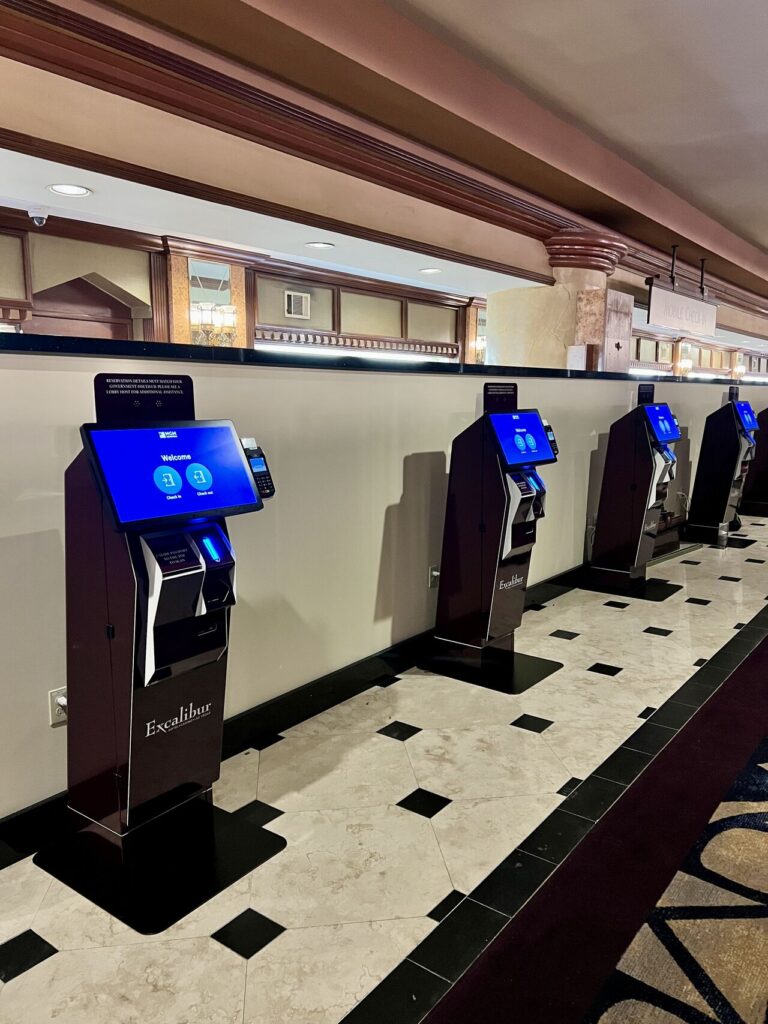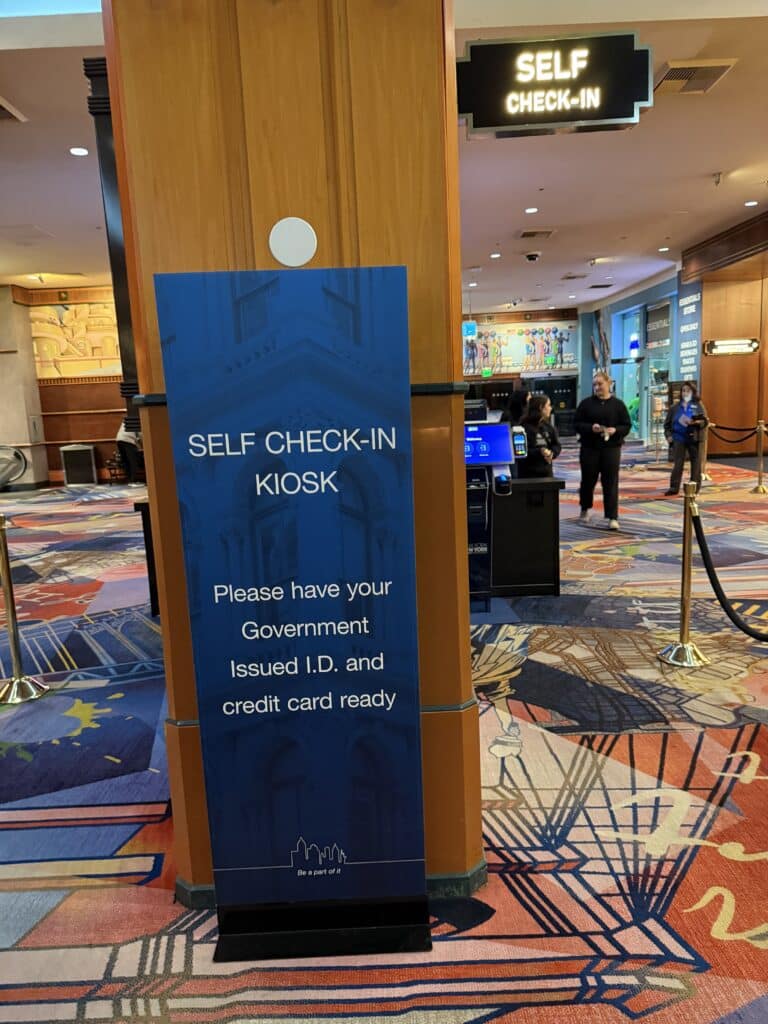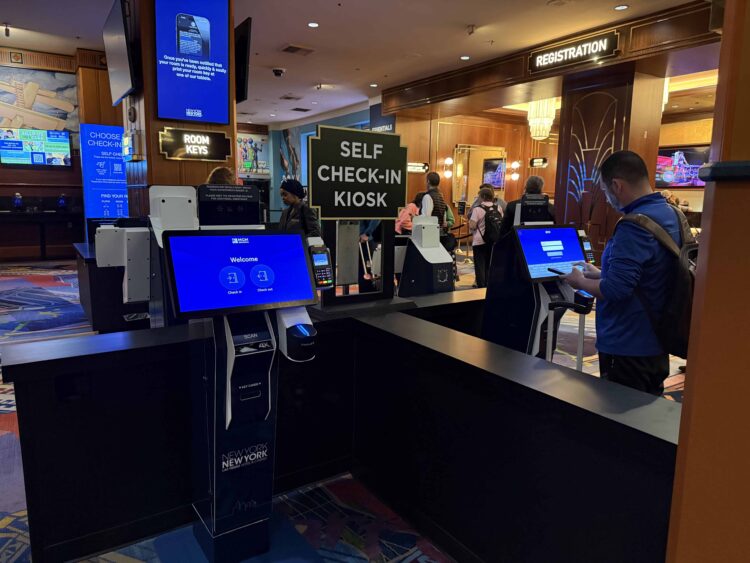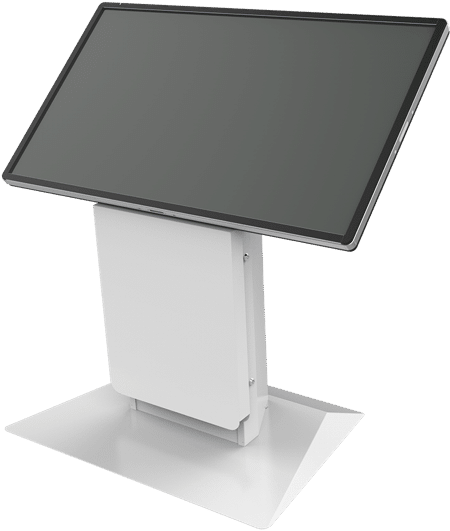In hospitality, guest expectations are shifting faster than ever. Travelers want control, convenience, and a seamless experience at every step of their journey. For IT leaders, that creates both a challenge and an opportunity: how to deliver on those expectations in a way that also supports operational efficiency.
MGM Resorts recently highlighted this balance in a Hospitality Tech Innovator feature. Their focus was on using technology to reduce wait times and remove friction at the front desk. For MGM, guest experience improvements were not about removing staff but about allowing technology to take care of the routine so employees could focus on higher-value interactions.
This focus on frictionless guest experience technology is not unique to hospitality. Healthcare providers are deploying patient check-in kiosks to speed appointments. Quick service restaurants use them to reduce order lines. Stadiums and venues rely on them for ticketing and entry. In every case, the goal is the same: make the routine easier, so people have a better overall experience.
This is exactly where self-service kiosks come into play. The hospitality industry has learned that guest-facing technology succeeds when it reduces friction, not when it complicates the process. Kiosks are most effective when they simplify routine tasks and give guests options while allowing staff to provide the human warmth that makes a stay memorable.
The Guest Expectation Shift
Today’s guests have grown used to self-service technology in nearly every part of their daily lives. From ordering food through a mobile app to checking in at an airline kiosk to scheduling a rideshare, the ability to manage transactions quickly and independently is now the norm.
Hospitality is not exempt from this trend. Guests are looking for similar convenience when they arrive at a hotel or resort. They want the option to bypass long lines, get to their room quickly, and move at their own pace. Convenience has become a baseline expectation, not an upgrade.
This shift does not mean that guests no longer value personal interaction. It simply means that when they want personal attention, they expect it to be meaningful. Kiosks allow properties to provide both: the efficiency of self-service and the personal touch of a staff member who is not tied up in routine transactions.
Where Friction Shows Up in Hospitality

The hotel arrival experience is one of the most common sources of guest frustration. Long check-in lines, especially during peak hours, can leave a poor first impression. Waiting to reprint a room key, update a reservation, or check out during a busy morning rush adds unnecessary stress.
These friction points affect more than guest mood. They directly influence satisfaction scores and repeat business. At the same time, staff can become overwhelmed when asked to handle high transaction volumes, leaving little room for the kind of personal service that strengthens loyalty.
It is important to recognize that not every interaction should be automated. Guests still want personal engagement when resolving complex issues, seeking recommendations, or celebrating special occasions. The challenge for IT and operations leaders is to identify which interactions are better suited for self-service and which are opportunities to deliver human warmth.
Frictionless Guest Experience Technology
Self-service kiosks are designed to streamline the guest journey by taking on routine, repetitive tasks. Integrated with a hotel’s property management system and payment platforms, kiosks can:
• Handle check-in and check-out quickly and accurately
• Process payments and issue receipts
• Reprint keys when needed
• Offer room upgrades or additional services Display multiple languages to better serve international guests
By moving these functions to kiosks, staff are free to focus on areas that require empathy and personal judgment. The result is a more balanced service model that keeps operations running smoothly while elevating the guest experience.
This is exactly what MGM Resorts set out to achieve. They developed a custom kiosk solution that cut the average check-in time from six minutes to 94 seconds! Their kiosks help manage surge volumes and reduce pressure on front desk staff. Guests benefit from shorter wait times, and staff are empowered to provide more thoughtful, personalized service to those who need or want it.
Finding the Balance: Technology and Human Touch
There is a misconception that kiosks replace hospitality and that is far from reality. Kiosks do not eliminate the human element. Instead, they enhance it by allowing staff to dedicate time and attention where it matters most.
Imagine a guest arriving after a long day of travel. If they prefer speed, they can use a kiosk to check in within minutes. If they need assistance with a special request, staff have the capacity to help because they are not tied up with routine check-ins. Both types of guests leave with a positive impression, but for different reasons.

The real value comes in establishing the right balance. Hospitality has always been about making people feel comfortable and cared for. Kiosks are a tool that help achieve that by removing barriers and creating space for genuine interaction.
Why IT Leaders Should Care
For IT leaders, kiosks are more than a guest amenity. They are a strategic technology investment that supports multiple business objectives:
• Operational efficiency: Kiosks speed up throughput and reduce labor pressure.
• Scalability: They help properties handle peak periods without adding temporary staff.
• Consistency: Kiosks deliver a reliable experience across locations and brands.
• Data insights: They provide valuable usage data that can inform decisions around service improvements.
• Future readiness: Modern kiosks are built to integrate with mobile apps, digital room keys, and other evolving technologies.
These advantages make kiosks a practical solution to ongoing staffing challenges and guest expectations. For many properties, they are no longer a “nice to have” but a necessary part of the service model.
Going Forward
The hospitality industry has learned that guest-facing technology succeeds when it reduces friction. Self-service kiosks are an excellent example of this concept in action. By simplifying routine tasks, kiosks give guests control and convenience while freeing staff to focus on what they do best: creating memorable experiences.
For IT leaders, kiosks offer the dual benefits of efficiency and guest satisfaction. They are a proven way to align technology investment with both operational goals and brand loyalty.
At Olea, we believe hospitality technology should enhance service, not replace it. That is why our kiosks are designed with the guest journey in mind, helping properties remove friction and deliver the experiences that keep travelers coming back.
We’ve worked with numerous hospitality providers to deliver enhanced self-service solutions including hotel check-in.
If you’d like to look at adding frictionless guest experience technology to your guest journey, contact us today to schedule a conversation with one of our experts.


